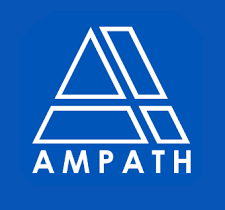Grade: NOB
Vacancy no.: DC/DAR/NO/2020/2
Publication date: 16 April 2020
Application deadline (midnight local time in Dar es Salaam, Tanzania): 14 May 2020
Job ID: 3230
Department: RO-Africa
Organization Unit: CO-Dar es Salaam
Location: Dar es Salaam
Contract type: Fixed Term
Contract duration: 1 Year
Under article 4.2, paragraph (e) of the Staff Regulations, the filling of vacancies in technical cooperation projects does not fall under Annex I of the Staff Regulations and is made by direct selection by the Director-General.
In order to support the best informed process in the filling of the above-mentioned vacancy by direct selection, the ILO invites interested candidates to submit their application online by the above date.
The Following Are Eligible To Apply
ILO Internal candidates in accordance with paragraphs 31 and 32 of Annex I of the Staff Regulations.
External candidates*
The recruitment process for National Officer positions is subject to specific local recruitment and eligibility criteria. The ILO may only offer a contract to persons who are Tanzanian.
Technical cooperation appointments are not expected to lead to a career in the ILO and they do not carry any expectation of renewal or conversion to any other type of appointment in the Organization. A one-year fixed-term contract will be given. Extensions of technical cooperation contracts are subject to various elements including the following: availability of funds, continuing need of the functions and satisfactory conduct and performance.
Conditions of employment for external candidates: In conformity with existing ILO practice, the appointment of an external candidate will normally be made at the first step of this grade. The entry level salary for this position is 101,715,000 (Tanzanian Shilling) yearly.
Introduction
This position is located in the Dar es Salaam work unit in the Country Office (CO-Dar es salaam). This work unit provides support to its constituents on skills development and employability. The support is provided based on the priorities of the Government, workers and employers. These priorities of are also featured in the national development plan, the decent work country programme (DWCP) and other relevant strategic documents developed by our constituents. Within the ILO, the priorities also aligns with the Programme and budget (P&B) 2020-21 outcomes.at Global Level, these priorities. Globally the priorities must be aligned with SDGs.
In Tanzania, there is significant progress in improving the skills and knowledge of the labour force. Enrolments has increased significantly in the last 5 years at all levels of education and training. The government is implementing alternative education and training programmes outside the formal system to complement and ensure no one is left behind. For example, since 2016/17, the government has expanded: workplace training programmes (internships) for graduates and apprenticeships; skills training for out of school youth, recognition and certifications of competencies for skilled but unqualified workers in the informal economy (RPL). These are implemented under the national skills development Programme (NSDP) and National skills development strategy (NSDS)
In response, the ILO, like other development partners provides support to the national institutions to help address some of these challenges. Under the current Skills UP project, ILO is working on three broad areas namely: 1. Skills for trade and economic diversification which encompasses sectoral approach to skills development to better align skills demand and supply and also develop futuristic skills planning system.2. Strengthening workplace skills development systems that is aimed at reducing the skills mismatch, improving workplace governance and building capacity of training institutions, companies to design and implement internships and apprenticeships.3. Skills for inclusion which support partners to adopt inclusive skills strategies and remove barriers to access for people with disability, women, people without qualifications and people living in rural and urban poor. The skills UP project is funded by the Government of Norway and is implemented by ILO in 5 African countries since May 2018.
Main purpose
As a team member, the incumbent provides comprehensive and professional services in the design, delivery and administration of a wide range of programming activities. These services cover development, implementation, monitoring, reporting and evaluation of programmes and projects in a multiplicity of technical areas. Work involves providing professional programming services for the formulation and implementation of Decent Work Country Programmes (DWCPs) to strengthen national capacity and activities in ILO mandated areas. Services are delivered in an efficient, effective and client-oriented manner and include the use of the enterprise resource planning (ERP) system. Work is governed by established rules, regulations, policies, procedures and guidelines. The incumbent applies and plays a key role in promoting the principles of results-based management (RBM).
incumbent will work under the overall responsibility of the Director of the ILO Country Office for the United Republic of Tanzania, Kenya, Uganda, Rwanda and Burundi (CO-Dar es Salaam director on all matters related to the project activities, deliverables, finances and administrative issues. Technically, the NPC will report to the Skills and employment specialist in the DWCT Pretoria. In addition, the NPC will liaise closely and regularly with global Manager of the skills UP project in Geneva who is in charge of the whole project. He/she will compile progress and final reports of the project and submit to the Global manager for compilation. He/she will regularly discuss budgets, deliverables and targets with the Global project manager. He/she will also be keeping close collaboration and seek guidance from the Skills Branch in Headquarters
The incumbent has a high degree of independence in completing work assignments. Supervision received is focused on the overall delivery of results impacting the Office.
Description Of Duties
-
- Review and analyze specific national development plans and priorities, socioeconomic data, reports and other relevant information related to skills development and decent work in Tanzania
- Undertake research and prepare analytical reports on skills development in Tanzania
- Assess experience on developing and implementing skills development with a view to identifying best practices in finding solutions to problems in the regions
- Monitor employment and decent work trends in Tanzania on a continuous basis; assessed and advice offered on the policy landscape in the country and its implication on skills development and decent work
- Technical support, advice, and coaching provided to the tripartite partners to ensure that capacities- both functional and substantive- are in built to enable them to carry out their mandates and functions more effectively
- Adapt ILO global tools to national circumstances as well as apply them and monitor their application
- Develop partnerships with line ministries, private sector and business organizations, social partners, other UN agencies, financial institutions as well as civil society organizations, including youth organizations working to implement and evaluate ILO skills development employment
- Conducting training seminars, workshops and meetings as well as leading and guiding the development of manuals and training guides for skills development
- Prepare, manage and keep up to date a finance and administration system that facilitates a proper reporting and effective interface with the administration and finance system of the ILO
- Build the capacity of national implementing partners and support them in the development of programme activities in skills development related issues
- Develop a knowledge management and sharing strategy of the programme, including information materials and research.
- Prepare background information, programme briefs, periodical reports, gender analysis and related technical reports and statistical data on status of programme activities and submit to the ILO Office in Dar and Employment specialist in Pretoria.
- Manage and supervise project staff and provide desired project leadership that work to promotes team work and achieve results
- Perform other relevant duties as assigned.
Required Qualifications
Education
- First level university degree in education/ technical and vocational education/ economic development, social science or a related discipline.
Experience
- Minimum of three years of professional work experience in programme and/or project planning, monitoring, implementation and evaluation activities. Experience in working with an enterprise resource planning (ERP) system, in particular strategic management/programming modules.
Languages
- Excellent command of English. Working knowledge of another official language of the Organization or an official national language of the duty station.
- Knowledge and Competencies (technical and behavioural)
- Good knowledge of programming and results-based management (RBM) principles and concepts.
- Good knowledge of the programming cycle (planning, monitoring, reporting and evaluation).
- Good knowledge of resource mobilization.
- Political awareness and understanding of socio-economic factors.
- Knowledge of the substantive nature of Organization’s work programmes and activities.
- Good knowledge of PC software (including word processor, spreadsheet and presentation software) such as Microsoft Office.
- In addition to the ILO core competencies [Integrity and transparency, Sensitivity to diversity, Orientation to learning and knowledge sharing, Client orientation, Communication, Orientation to change, Takes responsibility for performance, Quality orientation, Collaboration], this position requires:
- Research and analytical skills.
Drafting skills.
- Knowledge of methods and techniques for designing and assessing quality and efficiency of process execution.
- Ability to interpret and work within applicable rules, regulations, policies and procedures.
- Ability to maintain effective working relationships with key stakeholders.
- Ability to manage competing priorities.
- Ability to adapt quickly to new software and systems.
- Ability to oversee the work of and provide guidance to staff.
- Ability to work in a multicultural environment and to demonstrate gender-sensitive and non-discriminatory behaviour and attitudes.
Recruitment process
Please note that all candidates must complete an on-line application form. To apply, please visit the ILO Jobs website . The system provides instructions for online application procedures.
Candidates assessed by the Panel and considered to be eligible for appointment but who are not selected for this vacant post may be offered an assignment to another position at the same or lower grade provided that they meet the minimum qualifications required.











